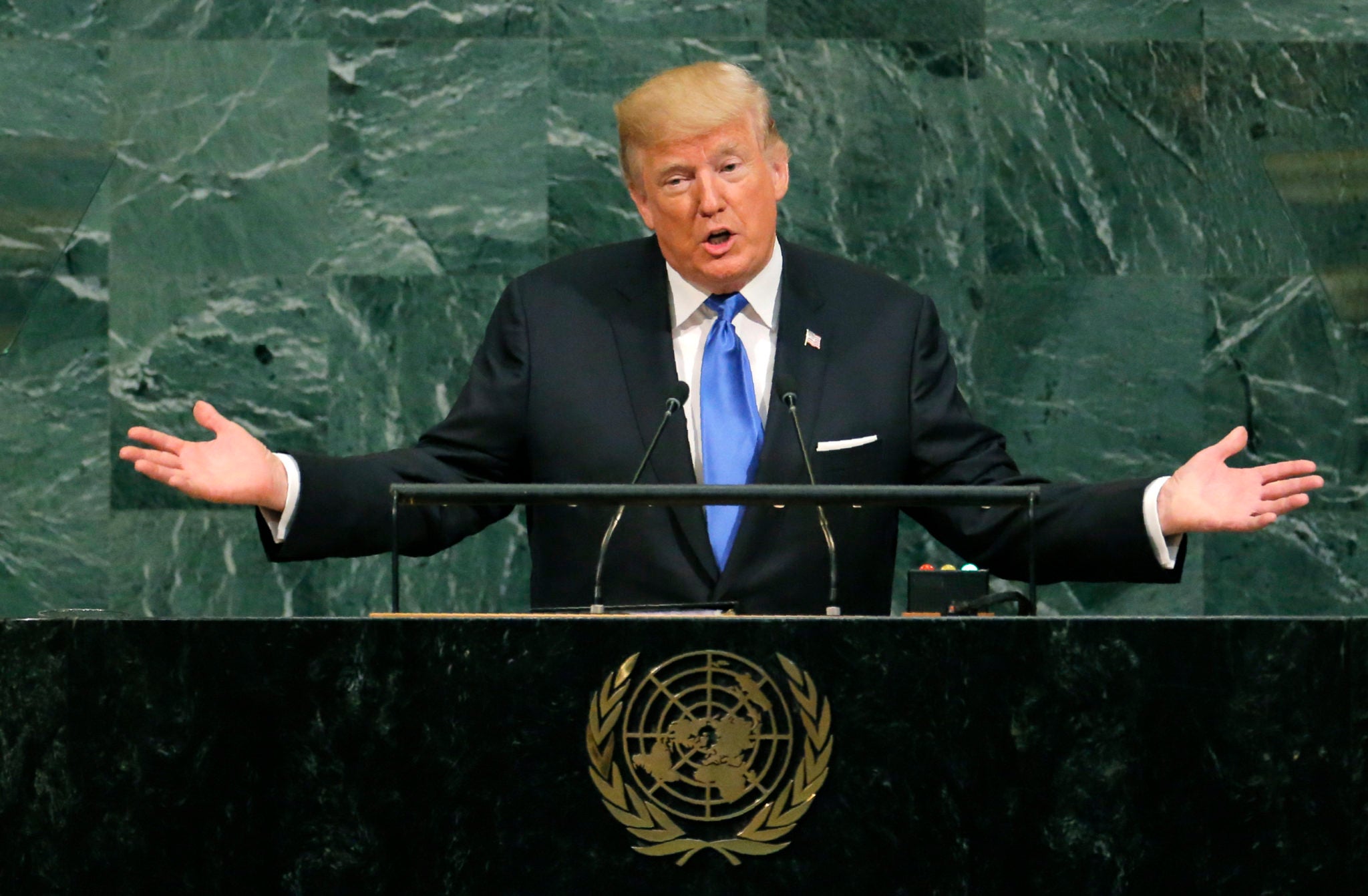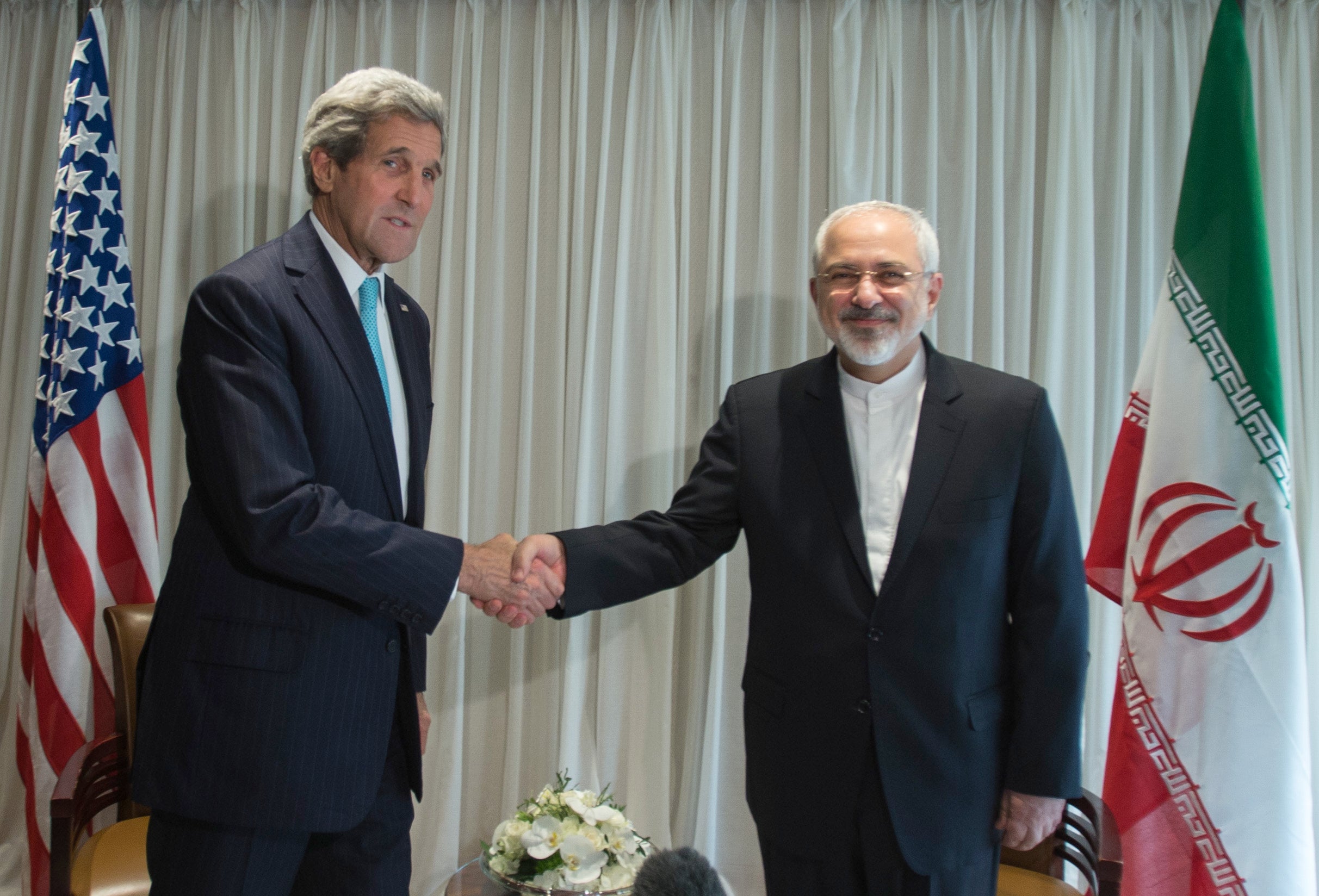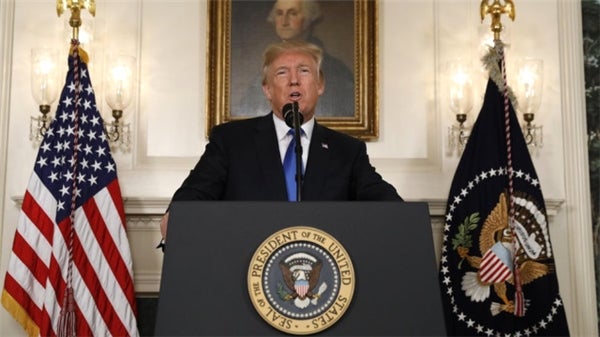
The Joint Comprehensive Plan of Action (JCPOA), better known as the Iran Nuclear Deal, enacted in late 2016, was a keystone foreign policy achievement of the Obama administration. On October 13, 2017, President Donald Trump declined to certify that Iran is in compliance with the terms of the treaty, putting the future of the deal in jeopardy. Trump denounced the deal, saying “we cannot and will not make this certification. We will not continue down a path whose predictable conclusion is more violence, more terror, and the very real threat of Iran’s nuclear breakout.” His comments came right before the October 15 deadline to certify Iranian compliance with the JCPOA every 90 days, a requirement under the Iran Nuclear Agreement Review Act (INARA). With the refusal, he shifts decision-making to the legislative arena, where Congress has the option to impose unilateral sanctions. Now, Congress has 60 days to consider re-imposing nuclear-related sanctions. SFS faculty offered their perspectives on the implications of JCPOA’s declassification and potential cancellation for the United States, the Middle East, and the global community.
Trump’s Perspective: Criticism at the U.N., Harbinger of Decertification Move

President Trump made his dissatisfaction with the deal clear during his inaugural address to the General Assembly of the United Nations on September 19, where he described it as “one of the worst and most one-sided transactions the United States has ever entered into” and hinted at renegotiation.
Professor Colin Kahl, former Deputy Assistant to the President and National Security Advisor to the Vice President during the Obama administration who worked on the deal, anticipated this desire to renegotiate in extensive analysis for Foreign Policy. President Trump, he predicted, might “use decertification to put Iran on notice and then try to leverage both additional non-nuclear sanctions and the threat that Congress or the administration may re-impose nuclear sanctions.”
Kahl also rejected the idea that more aggressive negotiating could have produced a better deal and criticized Trump’s suggestions to the contrary. “More pressure would not have produced a better outcome two years ago — and threatening to blow up the deal will not produce a better one today,” he wrote.
“The deal remains the most effective mechanism to prevent Iran from developing nuclear weapons, and jeopardizing it unnecessarily brings forward in time the very circumstances — an unrestrained Iranian nuclear program — that critics worry about a decade from now.”
Reaction from Within: Iranian Response to the October 13 Announcement
Professor Ariane Tabatabai commented on the impact Trump’s rhetoric can have on politics in Iran, and the desire among Iranian politicians to engage with the United States. In an article for Al-Monitor, a Middle East-focused newspaper, Tabatabai explained, “The problem is that [Trump‘s rhetoric] has very real implications, you can’t come out now and say ‘let’s find a solution to the ballistic missile program.’ Iran will now absolutely double down on its ballistic missile program.”
Tabatabai was a guest on KCRW, a National Public Radio member station, following the decertification announcement. Now that Trump has decertified the nuclear deal and used belligerent rhetoric against Iran in his speech on October 15, Tabatabai fears miscommunication and misinterpretation, not only amongst Iranian politicians, but within the Iranian civilian population. “The President is really reinforcing the view that the Islamic Republic had tried to install in the population and had failed, frankly, for nearly 40 years: that the U.S. can’t be trusted, that Iran needs to be self-reliant, that it needs to be ready for defense, and that the United States ultimately wants to topple the Iranian regime.”
Tabatabai also noted another impending challenge to continued Iranian implementation of the JCPOA. She fears backlash as a result of economic disincentives.
Part of what Iran signed up for in coming to the table was to get the economic dividends from making concessions on this nuclear program. If investors and businesses don’t go into Iran, because of the uncertainty, because of the pending sanctions, because of the general strategy that seems to be emerging from the Trump administration, then Iran won’t really have an incentive to stick around for too long.
Global Responses to Recertification Process
Kahl indicates that European leaders have no intention of allowing the United States to dismantle the deal entirely. “Although European leaders have suggested that they are open to considering ‘supplemental’ arrangements to address issues not covered by the nuclear accord, they are adamantly opposed to renegotiating the JCPOA itself,” Kahl wrote.

In an article in Business Insider, Professor Daniel H. Nexon interprets the undercutting of the deal as a risky indication of U.S. unreliability on the global stage. He cautions, “any attempt by the US to alter the framework — let alone abandon — risks creating major fractions with Germany, France, and other key allies. Doing so also creates another arena of political and diplomatic conflict with China and Russia.”
Tabatabai weighed in on the central importance of European involvement in the nuclear deal–for Iran and the rest of the world in an op-ed for Foreign Affairs. Iran depends on growing economic ties with Europe as the incentive that justifies restrictions on its nuclear program.
For [Iranian President Hassan] Rouhani, Europe’s participation is key to continued support for the deal in Iran.
Prior to the decision to decertify the deal, Europe had been ramping up their support for the deal, trying to convince the United States to stay involved while simultaneously preparing for its departure.
Tabatabai notes that Iranian efforts to maintain the deal have largely focused on maintaining ties with Europe, not the United States. “Iran has tried to deepen relations with Europe to raise the costs of having it follow the United States’ lead. But the European Union is hardly united in its foreign policy and must balance different positions and interests,” she wrote.
For the United States, any attempts to renegotiate or renege on the deal without the full support of key powers and Iran could be disastrous, Kahl argues. “Threatening to blow it up now unless Iran and our P5+1 partners acquiesce to new terms — as Trump seems hell-bent on doing — is not a recipe for a better outcome. It is a recipe for disaster,” he wrote.
Regional Tensions
Additional sentiment against JCPOA has come from Israel, where Prime Minister Benjamin Netanyahu sides with Trump in condemning the deal. Israeli criticism of the deal dates back to original negotiations with the Obama administration.

“In numerous meetings between Netanyahu and senior U.S. officials across my time in the Obama administration, the Israeli prime minister repeatedly voiced concerns that any accommodation with Iran risked legitimizing and emboldening the Islamic Republic’s regional agenda, and that any agreement — no matter how stringent — would be of dubious value because the regime would inevitably cheat,” Kahl wrote.
Israel could be an important partner for Trump if his administration were forced to take drastic and otherwise unilateral economic, or potentially military, measures after decertifying the deal.
“[Decertification] would pave the way for Congress and the administration to impose a “de facto global economic embargo” on Iran and, if necessary, for the United States or Israel to take military action” Kahl asserted.
Israel’s stance is also part of a larger web of conflicts and commitments in the Middle East that hovers over any JCPOA debate, as Iran seeks to assert its will in various countries and contends with historic Sunni-Shi’a antagonisms. Tabatabai focused on the growing momentum of the Kurdish independence movement as a complicating factor in a separate op-ed for Foreign Affairs. Kurdish-Iranian relations hold a unique place in Iranian foreign policy, with Kurdish areas having served as valuable points of economic transit amidst sanctions, but with Kurdish independence threatening Iranian regional aspirations.
“For Iran, a country that has seen its historic territory chipped at for centuries, Kurdistan isn’t just a concerning prospect—it’s an existential threat,” Tabatabai wrote.
Historical Perspective
Professor Shireen Hunter, research professor affiliated with the Prince Alwaleed Bin Talal Center for Muslim-Christian Understanding, wrote an article in Lobe Log about U.S.-Iranian relations, objecting to President Trump’s attribution of “just about all the ills of the Middle East and South West Asia” to Iran.
If history is any guide, even when Iran has acted as a stabilizing force in the region, as it did during the 1970s with Western approval, it has been accused of imperial designs and acting as the gendarme of the Persian Gulf.
The analysis does not bode well for future relations between the two nations, and if the JCPOA decertification is any indication, Shireen cautions, the United States faces a dilemma between compromise and understanding or “settling the Iran question once and for all.”